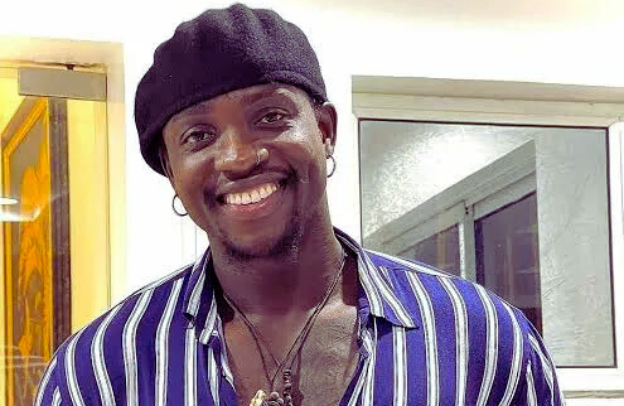John Henrik Clarke, American Historian and Professor – 1915 To 1998

A black nationalist, philosopher, historian, and lecturer, Dr. John Henrik Clarke was one of the first Afrocentric scholars who through his writings retold the downsized history of Africa. Dr. John Henrik Clarke found out at an early age that African history, despite the major biblical events that unfolded in Africa, was hardly ever told.
Want to learn more about storytelling? Start by downloading the first chapter of The Storytelling Mastery for Businesses.
Convinced that there were loopholes that stemmed from such, Dr. Clarke began an itinerary to various African countries, gathering the people’s history, writing vividly on them, and exposing it for the world to see and learn. That endeavor splayed knowledge about African peoples and culture and reconstructed the Eurocentric dogmatic ideas about “Africans having no history.”
As a self-taught historian, Dr. John Henrik Clarke’s generous efforts did not only halt at fact findings, rather it led to the introduction of African studies in the top universities in the United States, giving African Americans an edge in society.
Check out our Life & Legacy Series to read more about similar stories.
His works revealed the beauty of Africans and their cultures, inspiring others to learn about the continent with such a profuse wealth of history.
Dr. Clarke’s Childhood And Education
Dr. Clarke was born on January 1, 1915, as John Henry Clark in Union Springs, Alabama to John Clark, a struggling Sharecropper, and Wille Ella Clark, a petty washerwoman who unfortunately gave up the ghost in 1922 when Dr. Clarke was merely seven years old.
His father who was determined to own a farm by working excessively to earn more money, moved Dr. Clarke alongside his elder siblings to Columbus, Georgia. During Dr. Clarke’s stint in Georgia, he was geared to learn the art of farming which prompted his mother’s assumptions that Dr. Clarke would make a good farmer in the future.
In contrast to his mother’s assumptions, Dr. Clarke capitalized on the mass exodus of Blacks from Southern states to Northern states and left Georgia for Harlem, New York when he was just about eighteen years old through a cargo train.
Now in New York, Dr. Clarke swept himself briefly under the tutelage of Arthur. A. Schomburg (learn more about him in Blackpast.org), until he found his footing in the city. However, during that period Dr. Clarke changed his birth name “Henry” to “Henrik” in honor of his literary idol, Henrik Ibsen, a rebellious Norwegian playwright, and remodeled his last name by adding an ‘e’ to it.
His days in New York were characterized by his pursuit of a scholarship to a university and the earliest start of racial integration and activism. Added to these glaring facts, Dr. Clarke equally battled alongside the large U.S. troops during the peak of the Second World War, in 1941.
Dr. Clarke made an unusual groundbreaking record in the educational field with barely a high school diploma or Ph.D.
His ascension to the level of a professor had been a marvel to wonder, and unlike the usual, he only acquired his doctorate degree in his old age.
Dr Clarke’s sense of brotherhood and nationalism for Blacks was one of the triggering reasons he became the founder and chairman of Black and Puerto Rican Studies at Hunter College of the City University of New York from 1969 to 1986.
In addition to his remarkable achievements, his commitment to the advancement of African history and heritage was also demonstrated through his role as the esteemed Carter G. Woodson Distinguished Visiting Professor of African History at Cornell University’s prestigious Africana Studies and Research Center.
This position allowed him to not only impart his vast knowledge and expertise but also to inspire and empower countless students and scholars to delve deeper into the rich tapestry of African history.
Furthermore, his dedication to fostering academic and intellectual discourse within the African-American community was exemplified through the founding of two groundbreaking organizations in 1968: the African Heritage Studies Association and the Black Caucus of the African Studies Association.
These organizations served as pivotal platforms for the promotion of African heritage, culture, and scholarly excellence, fostering a sense of unity and empowerment within the broader academic community.
Through his visionary leadership and unwavering commitment to education and historical understanding, he left a permanent mark on the scholarly landscape, shaping the discourse on African history and heritage for generations to come.
His Endeavors in Unveiling The History Of Africa.
Given the synergy of Eurocentric books that downplayed Africa’s civilizations and history which had denied many African-Americans the opportunity to learn the wealth of history Africa has, Dr. Clarke during his prime years begged to differ.
He believed there must have been a reason Africa’s history was not publicized just like other people’s history. The quest to uncover the mystery fueled his itinerary in various African countries where he excavated the history of these societies.
During this adventure, Dr. Clarke uncovered the fact that the earliest known type of “man” existed in Africa. That solid discovery was revealed to his fellow Blacks in the United States.
According to Dr. Clarke who thought several biblical events and relations of African kings and queens, “unfolded in Africa…I saw no African people in the printed and illustrated Sunday school lessons,” he wrote in 1985. “I began to suspect at this early age that someone had distorted the image of my people. My long search for the true history of African people the world over began.”
During his research, Dr. Clarke paid visits to several libraries, archives, attics, museums, etc., in Asia, Europe, Latin America, and Africa, etc. to unearth facts that unveiled the rich history of Africa.
At the seeming end of his fact findings, Dr. Clarke made it known that both the earliest humans and civilizations began in Africa. He opined that the famous term “Dark Ages” was only extant in Europe and not Africa because during that period Africa and her people were developing themselves industrially and otherwise at their own pace.
Dr. Clarke, of course, buttressed his statement with clear references to several African kingdoms and kings that impacted the society.
He went further to assert that while Africans were at a time sending their youths to study in universities in Europe, Greeks dispatched their people to study in Africa because Africa was believed by the Greeks to have the best Universities.
His Legacy And Remembrance
Dr. Henrik Clarke’s legacy is profound, marked by his unwavering dedication to African history and culture. His influential scholarship and activism have left an enduring impact on the understanding of the African diaspora, challenging historical narratives, and promoting a more inclusive perspective.
Clarke’s commitment to education and empowerment continues to inspire generations, shaping a legacy that transcends academic boundaries.
Want to learn more about storytelling? Start by downloading the first chapter of The Storytelling Mastery for Businesses.





